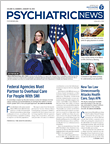Sometimes the direction of the journey becomes evident only after the voyage has begun, an insight that Carl Bell, M.D., reached well into his years of practice in inner-city Chicago.
Bell has spent half a century trying to help children who had been abused, had difficulty learning or out-of-control tempers, or poor social skills. For much of that time, he sought to figure out just why they presented with those symptoms. In time, he concluded that the origins of much of their behavior lay in their mothers’ consumption of alcohol in the early weeks or months of pregnancy.
“It causes children, adolescents, and adults to have difficulty with learning, controlling their affect, remembering important things, and adapting to social situations,” he wrote in one chapter of a recent National Academy of Medicine (NAM) report, “Perspectives on Health Equity and Social Determinants of Health.” The report grew out of a meeting of the NAM’s Culture of Health Program that discussed the social determinants of health inequities and social injustice and sought “to identify strategies to create and sustain conditions that support equitable good health for all Americans.”
His generation in medical school learned to look for fetal alcohol symptoms only in infants, but now he believes that fetal alcohol exposure leads to more than diagnosable fetal alcohol syndrome or related conditions, said Bell. “Like many clinicians, I have been seeing the impact of fetal alcohol exposure for decades, but I did not know what I was seeing, nor did I understand its etiology.”
Enlightenment came with time and experience. His analysis of 274 children in Chicago schools found that two-thirds to three-fourths had symptoms—like intellectual disability, hyperactivity, poor attention span, and poor control of affect or impulse—that could be attributed to fetal alcohol exposure.
Most women do know they should not drink alcohol when pregnant, but nearly half of all pregnancies are unplanned, said Bell. Thus, many women may be consuming alcohol before they know they are pregnant, leaving their children at risk.
Bell suggests that choline (in the form of phosphatidylcholine) be added as a supplement for pregnant women. There is some evidence from human and animal studies that choline may increase activation of the alpha-7 nicotinic acetylcholine receptor, which has been associated with schizophrenia, autism spectrum disorder, addictions, and attention-deficit/hyperactivity disorder. Most people get enough choline through their diet, but women are often deficient during pregnancy.
Such supplementation was tested in a small clinical trial by researchers from the University of Colorado and published in 2016 in the American Journal of Psychiatry (AJP). Pregnant women received phosphatidylcholine beginning 16 weeks after their last menstrual period, and their infants received daily oral doses for 90 days following birth. The control group received standard care and advice on dietary sources of choline. Forty-nine of the initial 100 women were available at 40 months to evaluate their children using the Child Behavior Checklist. Parent ratings were lower on the attention and withdrawn subscales, indicating better behavioral control, concluded the late Randal Ross, M.D., a professor of psychiatry at the University of Colorado School of Medicine, and colleagues.
Should such intervention prove effective in larger trials, primary care clinicians and obstetricians might screen pregnant women and advise them to avoid alcohol and also take choline supplements to lessen its effects on their children. However, recommendations for supplementation during pregnancy have not yet been widely accepted in medical practice, said Robert Freedman, M.D., a professor of psychiatry at the University of Colorado, a co-author on Ross’s study, and editor of AJP.
Regulators should consider formal guidelines recommending choline supplementation, and physicians should continue warning mothers-to-be against drinking, said Freedman. However, they should also make clear that that women should not drink even if they are taking choline.
“This problem deserves more attention,” said Bell. He called on the National Academy of Sciences to convene experts to evaluate the current state of knowledge on fetal alcohol spectrum disorders and interventions to lessen or prevent its effects. There are signs the medical community is getting the message. The AMA recently approved a resolution calling for higher levels of choline in vitamins formulated for pregnant women to help prevent the onset of schizophrenia and other neurodevelopmental disorders. ■
Perspectives on Health Equity and Social Determinants of Health” can be accessed
here. “Perinatal Phosphatidylcholine Supplementation and Early Childhood Behavior Problems: Evidence for CHRNA7 Moderation” is available
here.

